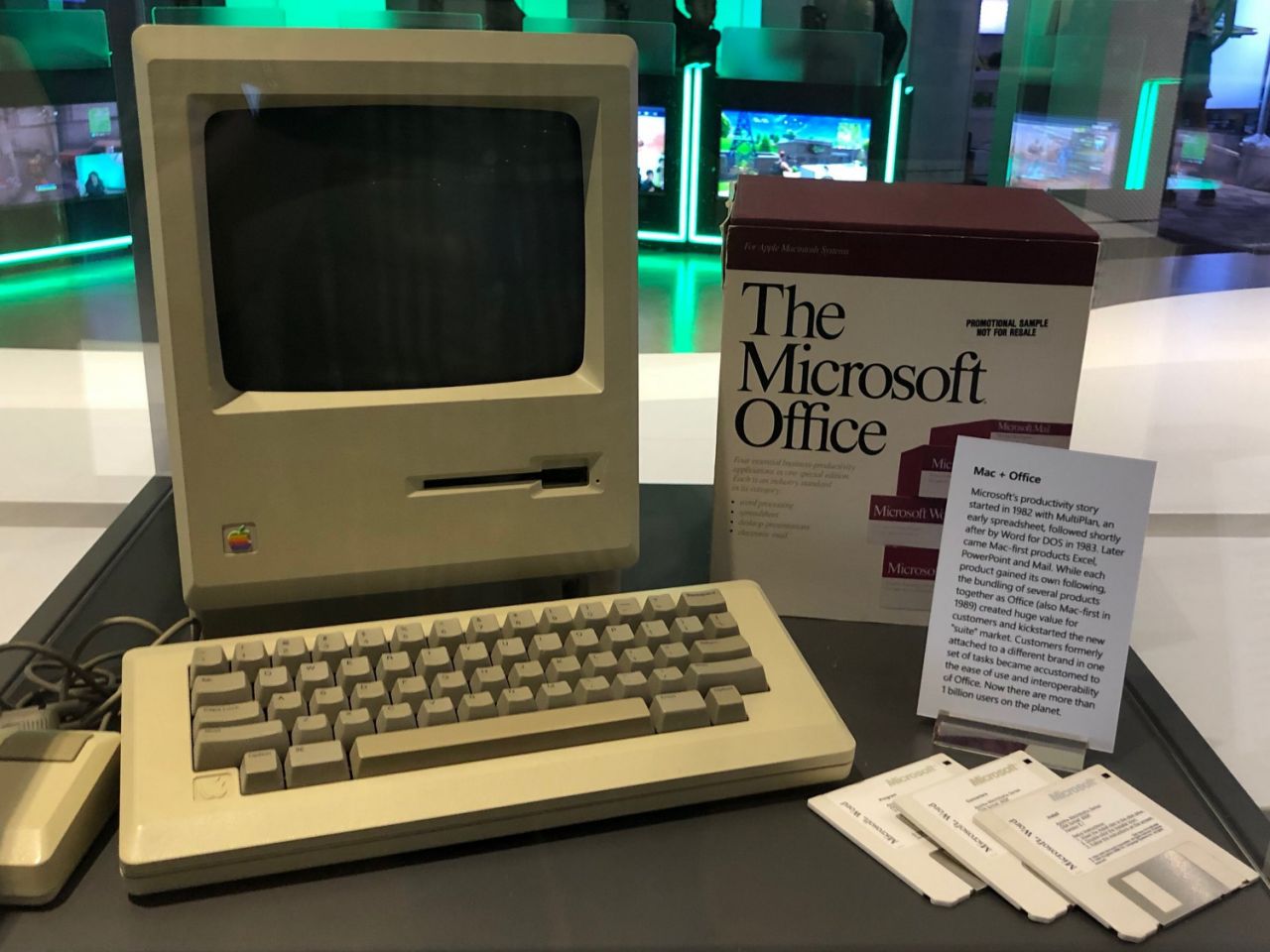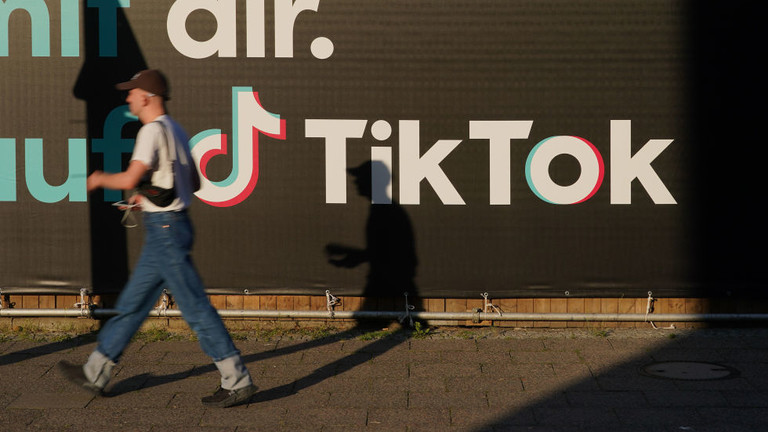Microsoft has an Apple Macintosh on prominent display at its Redmond headquarters.
•It might surprise some who remember the decades that Microsoft and Apple spent as the fiercest of competitors. However, many Microsoft products, like Microsoft Office, made their debut on the Macintosh, even as Steve Jobs and Bill Gates turned into the bitterest of frenemies.
•Microsoft acknowledging this history so publicly could be a sign of its changing culture.
If you’ve been following this stuff for a while, you think of Microsoft and Apple as bitter rivals — before there was iPhone vs. Android, or even Facebook vs. Snapchat, the biggest fight in tech was Mac vs. PC.
So it might be somewhat jarring to visit the recently-revamped Microsoft Visitor Center at its Redmond campus, only to find that the very first Apple Macintosh is proudly displayed, right next to other significant artifacts like Bill Gates’ first business card.
There is, however a very good reason for it: Microsoft as we know it might not exist without Apple’s groundbreaking Macintosh, the first mainstream computer with a graphical user interface (GUI).
In the early ’80s, Bill Gates and Steve Jobs were something like frenemies. Jobs flew up to Microsoft’s Washington headquarters for what Gates later called a “weird seduction visit,” in a successful attempt to have the company make Macintosh software.
Gates played a key role in hyping up the Macintosh, and even appeared alongside Jobs in a “Dating Game” parody video that was circulated among developers. In the video, Gates said that the Mac “really captures people’s imagination.”
The Macintosh would eventually come out in 1984, with its arrival announced by its still-infamous “1984” Super Bowl ad. Microsoft followed through on its commitment to the fledgling Mac: The first-ever versions of Excel, PowerPoint, and Mail followed thereafter. Indeed, Microsoft Office 1.0 started on the Mac. Gates once quipped that Microsoft had more people working on the Macintosh than Apple did.
Behind the scenes, though, things started falling apart in 1985, when Microsoft announced that it was getting into the graphical operating system game with Windows 1.0. A furious Jobs accused Gates and Microsoft of ripping off the Macintosh. But Gates didn’t care — he didn’t think Apple had the exclusive rights to the idea.
Besides, Gates and Jobs both got the idea from Xerox PARC, the famous research lab, which had originally pioneered the GUI.
As Jobs accused Microsoft of plagiarism, Gates famously replied: “Well, Steve, I think there’s more than one way of looking at it. I think it’s more like we both had this rich neighbor named Xerox and I broke into his house to steal the TV set and found out that you had already stolen it.”
The ongoing battle between Apple and Microsoft, which included at least one lawsuit, only widened the gulf between Jobs and Gates. Over the years, the two would take very public potshots at each other, with Jobs once ripping Microsoft for making “third-rate products” in a PBS documentary. 60 Minutes/Screenshot
Later in life, though, the two came to a kind of reconciliation. One of the very first things that Jobs did as Apple CEO in 1997 was announce that Microsoft had invested to help keep the company afloat after a years-long rough patch. The deal was announced with Gates appearing on a massive screen above Jobs.
By the end of Jobs’ life, tensions between them had cooled significantly. Jobs conceded that he admired Microsoft, and enjoyed working with Gates. For his part, Gates acknowledged Jobs’ taste.
“I respect Steve, we got to work together. We spurred each other on, even as competitors. None of [what he said] bothers me at all,” Gates said after Jobs passed.
In more recent years, Microsoft has mellowed out about competition in general. Under CEO Satya Nadella, Microsoft has released Microsoft Office apps for iPhone and Android, and made several appearances on-stage at Apple events. They still compete, especially as the Microsoft Surface laptops go head-to-head with Apple’s Macs and iPads. But tensions between the two companies seem lower than ever.
So maybe it’s no surprise that Microsoft is bragging about that aspect of its history, which played an important role in the current dominance of Microsoft Office 365. Perhaps it’s a new day at Microsoft, after all.



 NEWS2 months ago
NEWS2 months ago
 NEWS2 months ago
NEWS2 months ago
 NEWS2 months ago
NEWS2 months ago
 INVESTMENTS2 months ago
INVESTMENTS2 months ago
 FINANCE2 months ago
FINANCE2 months ago
 FINANCE2 months ago
FINANCE2 months ago
 WAR2 months ago
WAR2 months ago






















